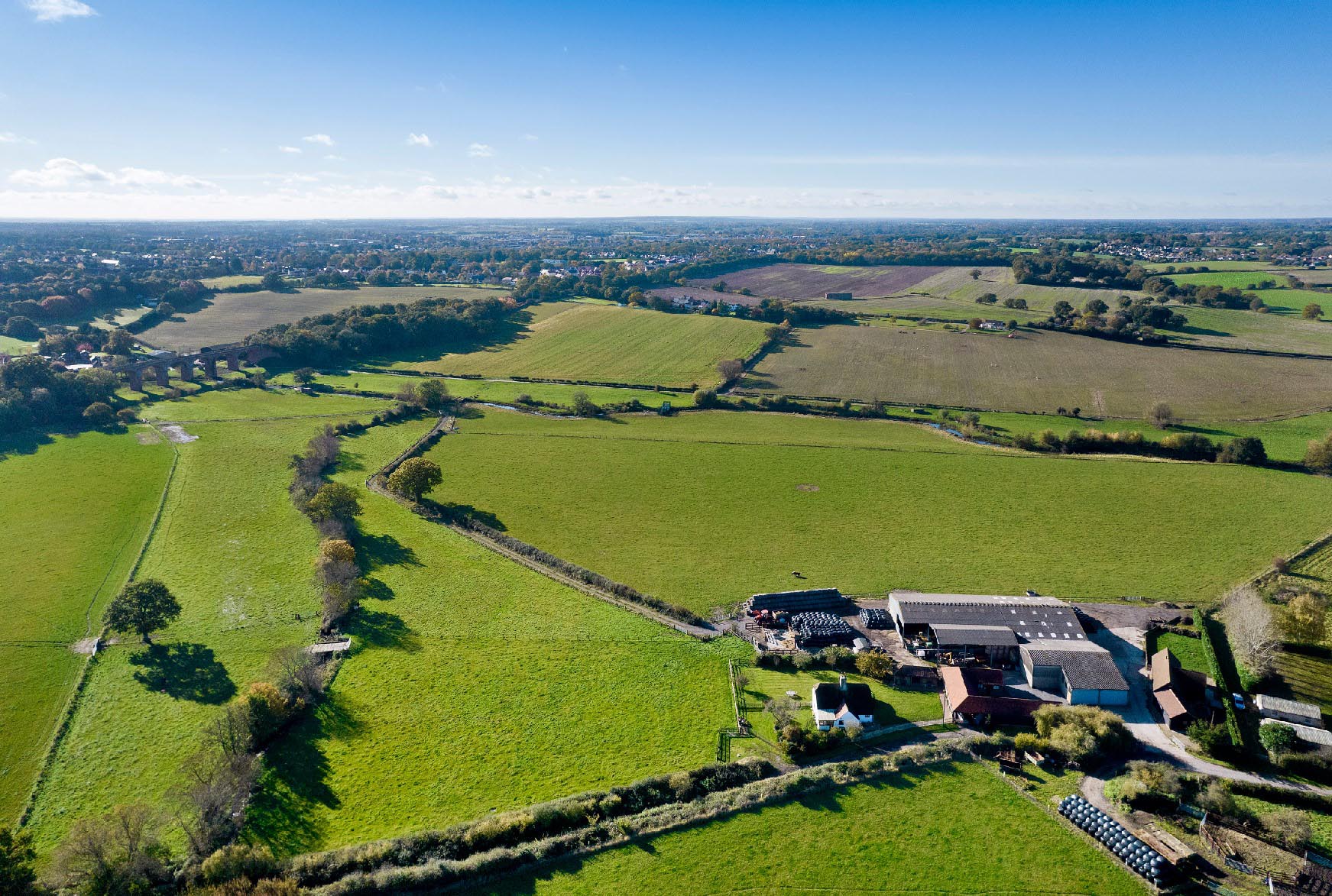UK rural property: Relationships are key
The Knight Frank Rural Property and Business Update – Our weekly dose of news, views and insight from the world of farming, food and landownership
9 minutes to read
Opinion
No doubt some within the farming and landowning sector will raise an eyebrow at the publication today of a new code of conduct for landlord-tenant relationships. Do we really need more regulation they will ask, isn’t everything working just fine without outside interference? In many cases that will, of course, be the case, but too often the landlord-tenant relationship has become adversarial and transactional rather than a genuine partnership which, with more talking, transparency and better advice, could be much more productive for both parties.
Do get in touch if we can help you navigate through these interesting times. You can sign up to receive this weekly update directly to your email here.
Andrew Shirley Head of Rural Research
In this week's update:
• Commodities – Lock into wheat premiums?
• Let land – Landlord/tenant code launched
• Scotland – New conditions for farm support
• Technology grant – Closing soon
• Fruit & Veg – Collaboration scheme up in air
• Fly tipping – Fines to be spent on clean up
• International news – Camels go commercial
• Next gen – Conference calling
• New launch – Essex development opportunity
• New launch – Easter treat in Warwickshire
• The Wealth Report – Out now
• Development land – Market stabilises.
• Farmland prices – 2023 ends on a high
• Country houses – 2023 better than expected
• The Rural Report – Watch the videos
Commodity markets

Time to lock into wheat premiums?
With wheat price premiums for the forthcoming harvest on the rise, now could be the time to lock in some of your crop, advises Andrew Martin of our Agri-consultancy team. “First-quarter 2025 future values are now above £200 per tonne for the first time in a while, so selling a bit forward seems to make sense again. If it’s the best price one achieves this marketing season, at least it’s above £200, if it’s the worst price one achieves, it’s not a bad place to start. With the higher milling premiums available values are looking more sensible now. Growers are still advised to know their budget cost of production to then understand their margin.” But Andrew also advises against overselling. “This year growers need to be careful because the weather conditions are making it very difficult to predict yields.”
Need to Know
Let land – Landlord/tenant code launched
The Agricultural Landlord and Tenant Code of Practice for England has been published today. Created by the Farm Tenancy Forum, a cross-section of industry bodies including the NFU, CLA and TFA, following a recommendation by the 2022 Rock Review, the voluntary code is designed to “foster and encourage clarity, communication, and collaboration in the tenanted sector”. It provides guidance on the standards of behaviour expected from all landlords and tenants as well as those providing professional advice in connection with agricultural tenancy matters.
Alastair Paul, a Cambridge-based partner in our Rural Consultancy team, who advises a number of large estates on landlord/tenancy issues and has advocated publicly for better relationships, says the code will be helpful. “I welcome the new code of practice and its key message of communication being the foundation stone of a productive relationship. It is not to be underestimated. I also feel that when difficult situations lead to frustration and irritation, the code will enable all parties involved to take a step back and reflect.”
Please contact Alastair for advice on any landlord/tenant issues.
Scotland – New conditions for farm support
Scottish farmers planning to claim farm support next year will need to abide by a number of new conditions that are aimed at boosting efficiency and cutting carbon emissions. These include a 410-day calving interval for the Scottish Suckler Beef Support Scheme. Although most herds already hit the target, farming bodies claim it could be an issue for smaller producers and could encourage more to quit, exacerbating further the ongoing decline of Scotland’s suckler beef herd. Farms will also need to complete two of the following: Carbon audit, biodiversity audit, soil analysis, animal health & welfare plans, and integrated pest management plans.
Technology grant – Closing soon
Anybody thinking of applying for a grant from the Farming Equipment and Technology Fund (productivity & slurry) has until April 17th to get their applications in. The grant provides funding of up to £50,000 to cover up to 60% of the cost of improving productivity and managing slurry. Defra says further windows are likely to open in 2024. For help on grant applications please get in touch with our grants guru Henry Clemons.
Talking points
Fruit & Veg – Collaboration scheme up in air
A few weeks ago, Farmers Weekly generously published a few of my thoughts on food self-sufficiency and security in the UK. My point was that a slew of breathless headlines about the impact of rewilding and other environmental schemes on food production was a bit of a red herring. When it comes to meat, dairy and grains we produce most of what we eat here; a more concerning issue is the horticultural sector. A lack of support for the industry means we are becoming more dependent on imports of fruit and veg. And not just tropical delights like avocados, but things that could happily grow here. Many smaller businesses have gone to the wall leaving certain crops like carrots dominated by just a few large players. The government’s failure, therefore, to announce a replacement for the EU’s Fresh Fruit and Vegetables Aid Scheme, which encourages grower collaboration and market efficiencies, is a bit of a worry. Relying on a dwindling number of growers doesn’t seem a recipe for food security, especially while EU producers are still benefiting royally from the scheme.
Fly tipping – Fines to be spent on clean up
Defra has just announced that the fines levied on fly tippers from the beginning of April will be ringfenced to help fund local authority clean-up operations. It’s a welcome move given that over 1 million incidents are reported each year and the issue is regularly at the top of landowner grievances, according to the annual Knight Frank Rural Sentiment Survey. However, the CLA says the funds should also cover the cost to private landowners affected by the scourge.
International news – Camels go commercial
Anybody who’s ridden on a camel will know that they can be grumpy so and sos, but that isn’t putting off the backers of huge commercial camel dairies – some have as many as 10,000 beasts - in the Middle East. This article provides an interesting view of the developing industry for camel milk, which offers a number of health benefits, that could be worth as much as £10 billion by the end of the decade. Small-scale and nomadic camel herders are, however, worried that the rise of mega-dairies could affect their traditional way of life and markets.
Out and about
Next gen – Conference calling
If you’re a next-gen land manager or rural entrepreneur you’ll want to attend the CLA Next Generation Conference at Crumplebury on the Whitbourne Estate near Worcester. The event on May 1st and 2nd, sponsored by Knight Frank, will help provide guidance for those who have recently taken over the family business or will do so shortly.
Property News
New launch – Essex development opportunity

Georgie Veale in our Farms & Estates team has just launched an exciting development or diversification opportunity in a strategic location at West Bergholt on the outskirts of Colchester. Bourne Barn Farm is a 200-acre mixed arable and livestock unit that includes a three-bed listed farmhouse, agriculturally tied barn conversion and a range of commercial workshop and office units. The guide price is £3.25 million for the whole.
New launch – Easter treat in Warwickshire
Our Farms & Estates team has just launched Cutlers Farm near Henley-in-Arden. The 327-acre mixed farm, on the market for the first time in 60 years, includes a period family home with extensive secondary accommodation and income producing commercial property. The guide price is £6.5 million. Please contact Alice Keith for more information.
Our Latest Property Research
The Wealth Report – Out now

The 2024 edition of The Wealth Report, Knight Frank’s leading piece of thought leadership on global wealth and property trends is out now. This instalment of the report includes the latest wealth creation data – spoiler, there are more rich people – and an article by yours truly on global farmland markets and how they are being influenced by ESG and Natural Capital. Download your copy.
Development land – Market stabilises.
Newly released figures from the Knight Frank Residential Land Index show that England greenfield and urban brownfield values were flat in Q4 2023 compared with the previous quarter. Previously, urban brownfield values had fallen by 20% since the most recent peak of the market in the first quarter of 2022 up to Q3 last year, with greenfield down 17% during the same period. Greater economic confidence and a slowdown in the rise of build costs helped underpin values, says my colleague Anna Ward. Read her full report for more numbers and insight.
Farmland prices – 2023 ends on a high
The Q4 2023 instalment of the Knight Frank Farmland Index has now been published. The average value of bare agricultural land rose by 2% in the final quarter of the year to break the £9,000/acre barrier for the first time. Annual growth was 7%, which outperformed a number of other asset classes. Our research suggests values may flatten out this year, but supply remains limited and demand robust. Read the full report for more insight and analysis.
Country houses – 2023 better than expected
Kate Everett-Allen, our international residential research guru, has added the country homes market to her portfolio and has a bit of good news to report. “Prime country house prices declined by 5.8% in 2023. While this figure represented a sizable correction after two stellar years of growth, the rate of decline was lower than our forecast of -7% for the year. A growing sense that mortgage rates are at, or close to their peak, began to influence market sentiment towards the end of the quarter – a theme we expect to build this year. That’s not to say prices and sales volumes will bounce back strongly. Although the Bank of England opted to hold interest rates at 5.25% in December, the cost of borrowing remains at a 15-year high.” Read Kate’s full report.
The Rural Report – Watch the videos!
You've read the book, now watch the videos! To complement the thought-provoking articles contained within the 2023/2024 edition of The Rural Report our whizzy Marketing team has also created a series of videos featuring many of the report's contributors. Head to our very own YouTube channel to discover more about biodiversity net gain and regenerative farming; find out how we are helping Guy Ritchie's Ashcombe Estate on its diversification journey; and read about the travails of an entrepreneurial Zimbabwean searching for a farm for his family. Plus, lots more.